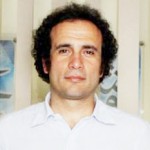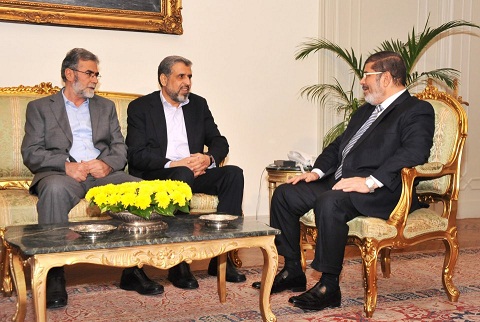After President Morsy withdrew the decision to raise the taxes on all luxurious commodities, columnists ask, who influences the president in making such decisions? Many writers have accused him of not being able to differentiate between ruling a nation and obeying his Islamist group.
Ibrahim Eissa
Tahrir Newspaper
Failure Reveals its President
With a great degree of skepticism, Eissa describes President Morsy and his policies as being perturbed and undecided and conforming to the orders of his Muslim Brotherhood Society. In light of the magnitude of state deregulation and lack of planning, Eissa accuses the president of failing to differentiate between regulating family issues and managing an entire state.
Such lack of vision, in Eissa’s viewpoint, has been demonstrated by the midnight presidential decision to raise prices and taxes that was poorly studied, resulting in an immediate retraction. He questions the reasons that led the president to retract his decision pertaining to prices, whilst insisting on conducting what he describes as a mutilated referendum on a destructive constitution.
The presidential retraction, regarding rises in taxation, constitutes a scandal, according to Eissa. He states that the president dated his decision in such a way that it precedes his cancellation of the constitutional declaration, in order to grant it immunity from jurisdiction. Furthermore, Eissa criticises the timing of such a decision, in light of Morsy’s need to gain popular support for his new constitutional referendum.
By making such decisions, Eissa adds that Morsy has effectively widened the range of opposition to his so-called policies, given the initial extent of political rage against him. The retraction of the decision came as an order from the Muslim Brotherhood, after an announcement by the National Salvation Front in the name of its upcoming protest, ‘Against the Referendum and Price Escalation’. Eissa also predicts that prices will inevitably rise and describes their financial policies as built upon borrowing and over-taxation in a re-enactment of the Mameluk era.
A Presidency with the Taste of the Caliphate
Fouad Al-Said
Al-Watan Newspaper
Al-Said examines the rising pressure exerted by political Islamist supporters in presidential institutions, calling for more resolute powers to be in the hands of the president. According to him, these pressures culminated in the issuance of what he regards as an un-constitutional declaration, which grants presidential decisions immunity from jurisdiction.
He states that the president did not change his mind until he realised the extent of revolutionist-led demonstrations opposing the declaration. In spite of this, the president kept Clause no 4, which still safeguards the immunity of his decisions from litigation.
While this reflects the desire of the Muslim Brotherhood to acquire undisputed control over the decision-making process in the country, the political arrogance reflected by a society that has been well known for its politically flexible agenda, invites Al-Said to examine its causes. On the one hand, this refusal to respond to the revolutionist demands reflects the Brotherhood’s fear of showing excessive lenience to their opposition, given their fragile management of the country’s affairs. This rigid stance comes after widespread pressures by the salafi movement.
On the other hand, according to Al-said, the salafi movement’s pressures to consolidate all powers to the president are an indication of their wishful thinking to re-enact the Islamic Caliphate, but in its dark post-Rashidun form. Al-Said explains that by stating such a view of the Caliphates, advocates handing over executive, legislative, and juridical powers to a single person on top of the state’s political hierarchy.
Amr Hamzawy
Who Makes Decisions in Al-Ittihadiya?
Al-Watan Newspaper
Hamzawy poses what he considers to be a legitimate question in view of the successive decisions taken by the presidential establishment, which have always been followed by immediate retraction, especially in the past few days. The group resignation of some of the presidential advisors further incited Hamzawy to pose this fundamental question: Who is making the decisions in Al-Ittihadiya Palace?
Answering this question leads Hamzawy to analyse the various press conferences undertaken by prominent figures of the Muslim Brotherhood, namely the Grand Murshid and his deputy. It revealed the alarming extent to which boundaries between affairs of the state and the Muslim Brotherhood Society have become dissolved. This also comes in light of the presidential decision to raise taxation on a variety of goods which was instantaneously cancelled the following day.
Hamzawy states three precise answers to his own question. Firstly, he condones that the president makes his decisions in conjunction with a narrow circle of advisors and deputies, in addition to other figures belonging to the Muslim Brotherhood and its Freedom and Justice Party (FJP).
Secondly, the president involves the Muslim Brotherhood leadership in the decision-making process, whilst limiting the role of his presidential advisors to a merely ceremonial role. Lastly, Hamzawy concludes that decisions are being made for the president by the Muslim Brotherhood and FJP leadership in conformity with the traditional Ikhwani decision-making hierarchy.





